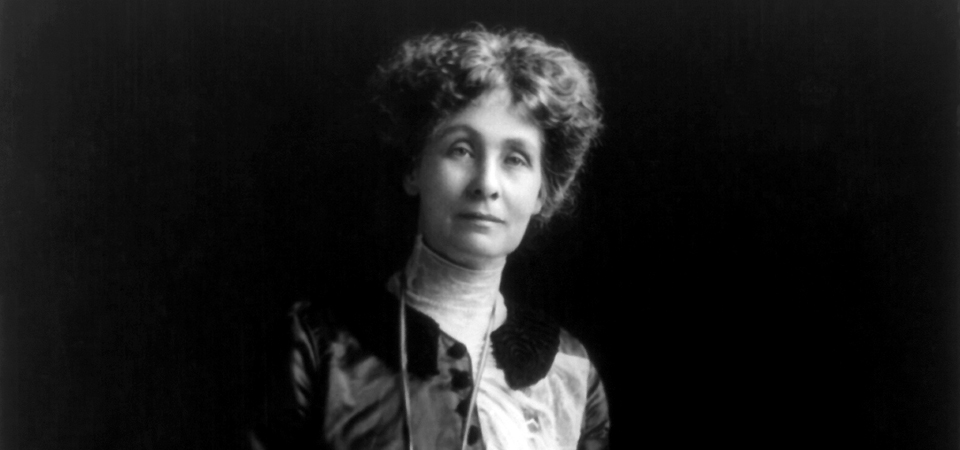- Home |
- Search Results |
- My Own Story by Emmeline Pankhurst

At length the opening day of Parliament arrived. On February 19, 1906, occurred the first suffrage procession in London. I think there were between three and four hundred women in that procession, poor working-women from the East End, for the most part, leading the way in which numberless women of every rank were afterward to follow. My eyes were misty with tears as I saw them, standing in line, holding the simple banners which my daughter Sylvia had decorated, waiting for the word of command.
Of course our procession attracted a large crowd of intensely amused spectators. The police, however, made no attempt to disperse our ranks, but merely ordered us to furl our banners. There was no reason why we should not have carried banners but the fact that we were women, and therefore could be bullied. So, bannerless, the procession entered Caxton Hall. To my amazement it was filled with women, most of whom I had never seen at any suffrage gathering before.
Our meeting was most enthusiastic, and while Annie Kenney was speaking, to frequent applause, the news came to me that the King's speech (which is not the King's at all, but the formally announced Government programme for the session) had been read, and that there was in it no mention of the women's suffrage question. As Annie took her seat I arose and made this announcement, and I moved a resolution that the meeting should at once proceed to the House of Commons to urge the members to introduce a suffrage measure.
The resolution was carried, and we rushed out in a body and hurried toward the Strangers' Entrance. It was pouring rain and bitterly cold, yet no one turned back, even when we learned at the entrance that for the first time in memory the doors of the House of Commons were barred to women. We sent in our cards to members who were personal friends, and some of them came out and urged our admittance. The police, however, were obdurate. They had their orders. The Liberal government, advocates of the people's rights, had given orders that women should no longer set foot in their stronghold.
Pressure from members proved too great, and the government relented to the extent of allowing twenty women at a time to enter the lobby. Through all the rain and cold those hundreds of women waited hours for their turn to enter. Some never got in, and for those of us who did there was small satisfaction. Not a member could be persuaded to take up our cause.
Out of the disappointment and dejection of that experience I yet reaped a richer harvest of happiness than I had ever known before. Those women had followed me to the House of Commons. They had defied the police. They were awake at last. They were prepared to do something that women had never done before - fight for themselves. Women had always fought for men, and for their children. Now they were ready to fight for their own human rights. Our militant movement was established.
We heckle Cabinet Ministers. Mr Winston Churchill, for example, is speaking. 'One great question,' he exclaims, 'remains to be settled.'
'And that is woman suffrage,' shouts a voice from the gallery.
Mr Churchill struggles on with his speech: 'The men have been complaining of me—'
'The women have been complaining of you, too, Mr Churchill,' comes back promptly from the back of the hall.
'In the circumstances what can we do but—'
'Give votes to women.' Our object, of course, is to keep woman suffrage in the foreground of interest and to insist on every possible occasion that no other reform advocated is of such immediate importance.
From the first the women's interruptions have been resented with unreasoning anger. I remember hearing Mr Lloyd-George saying once of a man who interrupted him:
'Let him remain. I like interruptions. They show that people holding different opinions to mine are present, giving me a chance to convert them.' But when suffragists interrupt Mr Lloyd-George he says something polite like this: 'Pay no attention to those cats mewing.'